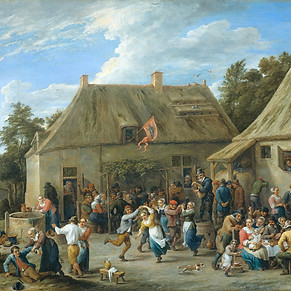Workshop 10
The Preventive System of John Bosco: Teaching Values and Virtues
Fr. Lou Molinelli, S.D.B., M.A. in Education
WEEK 28
1. The Life of Don Bosco
Objective: Teachers will illustrate Don Bosco’s powerful and successful witness of love through his four-pillar system of education.
• “Train up a child in the way he should go, and when he is old he will not depart from it.” – Proverbs 22:6
• Helping children grow through discovering and utilizing their talents
• Don Bosco always placed his students’ needs above his own
WEEK 29
2. The First Pillar: Reason
Objective: Teachers will assess the benefits of leading students to knowledge through reason rather than fear of punishment.
• Repressive system versus the preventive system of education for children
• The preventive system of reason, religion, and loving kindness
• Becoming a loving school leader by making rules clear, manageable, and always leading by example
WEEK 30
3. The Second Pillar: Religion
Objective: Teachers will compare their role as that of a servant in fulfilling the needs of the student.
• Educators must be ready to sacrifice all for the students
• “The young are our masters, we are not theirs” – Don Bosco
• We cannot give to the young what we don’t have, if we don’t live out our vocation in every aspect of our lives we will undermine all our efforts
WEEK 31
4. The Third Pillar: Loving-Kindness
Objective: Teachers will formulate how to choose to love even the most difficult students.
• “Loving-kindness” is love that is willed, a free choice to love
• Educators must be the center of loving-kindness for all students
• How to handle students with troubled home lives or behavioral issues
WEEK 32
5. Loving-Kindness Through Active Presence and Accompaniment
Objective: Teachers will discuss how students learn best when known and accompanied by their teacher.
• “There is no way of giving the truth without giving oneself.”
• Getting to know the students despite difficulties will open students to a greater ability to learn
• Encountering and engaging with our students in a personal way means getting to know their struggles, concerns, and anxieties, as well as what brings them joy and excitement.
• “Love what they love, and they will love what you love.”
WEEK 33
6. Discipline
Objective: Teachers will distinguish between Don Bosco’s methods for disciplining and punishing students for misbehavior.
• Punishment versus discipline
• How to make discipline most effective
• Ensuring a good relationship with all students from the beginning before discipline is necessary
• “Discipline” (which connotes an element of training or forming a person to behave in a certain way, as opposed to simply making him/her feel guilty for acting wrongly) expresses this way of helping children see that because we love them and want the best for them, we must help them take steps to reform their ways.

